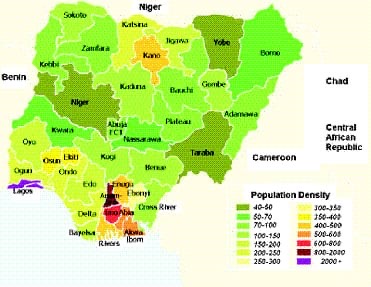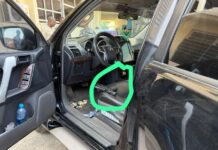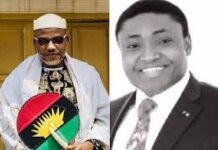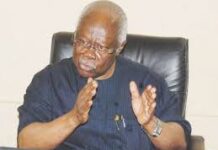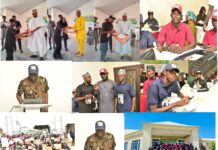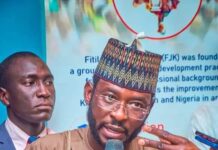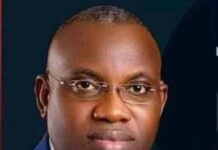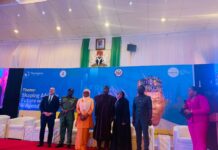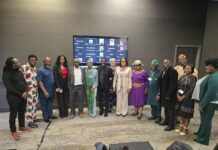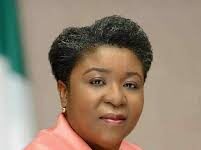THE CONUNDRUM OF POWER ROTATION IN NIGERIAN POLITICS By Dr. NURADDEEN AUWAL
Many Questions, No Answers
The major political question facing Nigeria today is undoubtedly the issue of Power Rotation of the Presidential Position between the North and South. Politicians and Political Analysts have been deliberating over the issue, especially with the prospect of decisive Party Congresses on the horizon. Some people present the issue as fait accompli, while others believe that all options are, and should be on the table; that it is subject to negotiation through amicable process of give and take. It should be clear to all fair minded people that, unless this question is satisfactorily resolved, the most likely outcome of any Presidential election is a stalemate. It is in the interest of all the political actors and the country as a whole to tread very careful around this issue. Any attempt at grandstanding and unnecessarily dogmatic argument will only make finding an amicable solution all the more difficult. The moment one begins to ponder over the issue, one gets confronted with so many questions with no obvious satisfactory answers: Is power rotation desirable? Does it unite or divide the country? Does it resolve or perpetuate parochial politics? Among which physical or ideological blocks should power rotate? Which country in the world has successfully adopted the power rotation model? Are the masses (electorates) carried along in the intra-elite power struggle? I have carefully pondered over these and many other questions and the common denominator I always come up with is even more questions than answers.Let us try to scrutinise some of these questions closely.
Wither The Federal Territory?
Let us start with the question of the key concepts: North and South. In common parlance, ‘North’ means the 19 Northern States, while South means the remaining 17 States. Looking at the concept critically, some questions come to mind. Where does the Federal Capital Territory fall? Being a FEDERAL TERRITORY, although it physically falls within the Northern Block, it will be disingenuous to classify it as North. Unless this issue it address, the FCT will perpetually be overlooked in the rotation equation. Since fairness and inclusiveness is the logic, this is a matter that needs to be addressed. Should the FCT, populated by the indigenous natives as well as Nigerians from all nooks and cronies of the country,also have its separate turn? Is it too small to demand its turn and should therefore resign itself to perpetual state of marginalisation? If size matters (or does not matter), why should the South demand equal share as the North in a rotational arrangement that seem to imply equality? We all know that the North is physically more than twice the size of the South and also dwarfs the South in population size.
The North Vs The Amorphous South
Secondly, while the North has some kind of coherent sense of oneness, despite attempt by some elements to drive an artificial wedge of disunity that goes by the name of Middle Belt, the South does not, and never had any sense of oneness. Notwithstanding the recent creation of so called Geopolitical Zones, no one doubts the fact that the North still maintains a sense of oneness. Historically there had been a political entity called Northern Nigeria, while, since the departure of the Colonial Masters, there had never been any political entity called Southern Nigeria. Therefore, the rotation, if it must be, will be between a self-conscious entity and a hypothetical one, which again, raises more questions than answers.
Let me quickly dispose of the notion of Middle Belt (which honestly I see as Middle-of-Nowhere). What I believe exist is a Middle Belt ideology ardently propagated by Southern press and some political elements in the North. That ideology rests squarely on division along religious lines: Muslims and Christians Northerners. Since there are followers of both religions in virtually all states in the North, from Sokoto to Taraba and from Borno to Kogi, the notion of Middle Belt becomes impossible to locate, physically. Out of nineteen states, there only two states in the North with clear Christian majority (Benue and Plateau), while Taraba state can go either way. The bottom line is that a physical entity called Middle Belt, whose defining ideology is religion is impossible to locate.
With such a scenario, it is possible to conceptualize and physically locate the North, while it is well-nigh impossible to do the same with the South. It is therefore an invitation to confusion to rotate power between the two. Sooner or later, the issue of obscure identity of the South will give rise to questions that have no answers.
Rotation At All Levels
The third question is limiting power rotation to the Federal Level of government, specifically to the position of the President. If power rotation is such a desirable idea why can’t we seek to apply it to state and local government level? In my view, there are states where the need to rotate power between the constituent ethnic groups is even more compelling and logical than there is at the Federal Level. For instance, in Benue State, with a slim population superiority, the Tiv have monopolized the position of Governor for such a long time. I am sure the Tiv will not even contemplate voluntarily yielding the position of Governor to the next largest ethnic group, the Idoma. The Urhobo in Delta State will seek to continue to dominate the Governorship position despite protestations from the Ijaw, the Itserkiri and the Isoko. The Nupe, the Hausas and the Gbagisshould consider rotating power in Niger State. Similar stories of decades of continued domination by one ethnic groups on grounds of slim numerical superiority exist in so many other states. Yet, the very people perpetuating such ‘unfair domination’are often the loudest in calling on the North to relinquish its advantage and handover the presidency to the South on the altar of power rotation. Isn’t what is good for the goose is also good for the gander?
Read Also:
Is Rotation Antithesis of Democracy?
The fourth question that is begging for answer is the compatibility of power rotation with democratic ideals. There is no gain saying that primordial sentiments (religion, ethnicity and regional loyalty) to a large degree dictates voting pattern in every corner of Nigeria. Without legal impediment and in the absence of willingly negotiated agreement between the majority of the political actors, voters are and should be free to choose who they want; that is the democratic ideal. To try to impose any restriction on the right of voters to exercise their right is to negate this fundamental democratic ideal. Those who are vehemently arguing for power rotation seem to close their eyes to this contradiction.
Turn-by-turn in proportional basis.
If fairness is the driving argument for power rotation, and given its numerical superiority, is it fair to ask the North to take one turn and the South also take one turn? Shouldn’t the number of turns a region takes reflect what it is bringing to the negotiation table? How about giving the North two turns for every one turn given to the South? In other words, taking turns in proportion of the voting population. At practical level this idea has much credence. In order to implement rotation, ALL the political aspirants in the North for instance must voluntarily opt out and support a candidate from the South. Furthermore, ALL political players in the North must sell a candidate to the electorates against their ethno-religious impulse. The same game will have to play out when it is the turn of the North. With the current power of Social Media, this is no mean task; electorates are less easy to persuade (or manipulate). Therefore, if the power rotation is to work, it must be designed in such a way that it is not only fair, but must be seen to be fair to both sides.
The Bigger Cake The Real Cake
Another issue which should seriously be considered is limiting the discussion to just political power. As we all know, there are three bases of power in any given society: the Social, the Political and the Economic. Discussions are now limited to the Political power purportedly monopolized by the North. Nobody is discussing other bases of power.
Let us start from the Social basis of power. The Christian religion and Christian values have had predominant influence for a long time in the nation. Some of the social aspect of life with Christian origin are taken for granted. Working days are Monday to Friday. The only concession is to make Friday a short working day. With the gradual emergence of Islamic influence, some of the social practices are coming under scrutiny. The issue of wearing Hijab in schoolsis still generating tension. Muslims in Ibo Land are severely and blatantly discriminated against. When one is viewing TV Commercials aired on a daily basis, it would appear the northern part of the country does not exist. Friction, sometimes open conflict have come to dominate social life in such states as Plateau and Kaduna States. The balance of Social power is being tested and adjusted continually in the country, as we work our way towards some desirable equilibrium.
Next, we should discuss Economic Power. The North is clearly and indisputably a marginal player when it comes economic power in Nigeria. The Manufacturing, Commercial and Financial sectors are heavily dominated by the South. The Communication industry, the media (print and electronic) and related businesses, are firmly controlled by the South. Nigerians of Southern extraction dominate all forms of economic activities, not only in their home states but in all the Northern states. There is no need to go into details on this point because it is plain for all to see. Northerners have borne this reality with patience and fortitude, believing that over time they will take their fair share of the economic fortunes of the country. When I was growing up in Kano in the early 60s, every Mechanic, every Carpenter, every Electrician, every Taxi driver, most Medical Staff, most Secondary School teaches were Southerners. The textile trade was dominated by Yorubas. From the urban centersto the remotest villages, Yoruba traders locally called ‘Yan Adaddoka’ plied their trade without competition or resistance. In short the entire modern economy in the North was dominated by Southerners. To a lesser extent, the story is still very much the same. On the other side of the equation, Northerners (and even South-Westerners) in the South-East are aggressively and forcefully excluded in all but few areas of economic activities. Northerners quietly bear this assault and invasion with the belief that, over time, things will even out.
Finally, we could then juxtapose the agitation for power rotation in the face of this broader power-sharing situation. How fair is it to ask Northerners to surrender the only basis of power in which they have comparative advantage?
In Malaysia, there are three ethno-racial groups. The indigenous Malay, the Indians and the Chinese. The Malay constitute a little over 50% of the population, while the other ethnic nationalities (immigrants of several generations) make up the rest of the population. Naturally, the Malay dominate political power. The Chinese, followed by the Indians dominate economic power. For years, this had been the sharing formula that had maintained an equilibrium of power. Not only do the Malay dominate political power, they have always insisted (rightly or wrongly) on certain privileges to the exclusion of the Chinese and the Indians. It is inconceivable to ask the Malay to surrender political power to either the Chinese or the Indians in the name of power rotation. Admittedly, the situation of Nigeria is not exactly the same as that of Malaysia, but the Malaysian example illustrates a situation where various forms of power (not just Political Power) can be fairly and equitably shared among competing groups in a country.
The Ultimate Solution
The ideal condition to which the nation should aspire to attain is a situation whereby all the primordial considerations have zero effect in major decisions in the country. This is a distant vision to which we could gradually work towards. In the meantime, I submit that there are two options we could adopt in the short and medium term.
Dr. Nuraddeen M. Auwal is a Management Consultant based in Abuja, FCT

